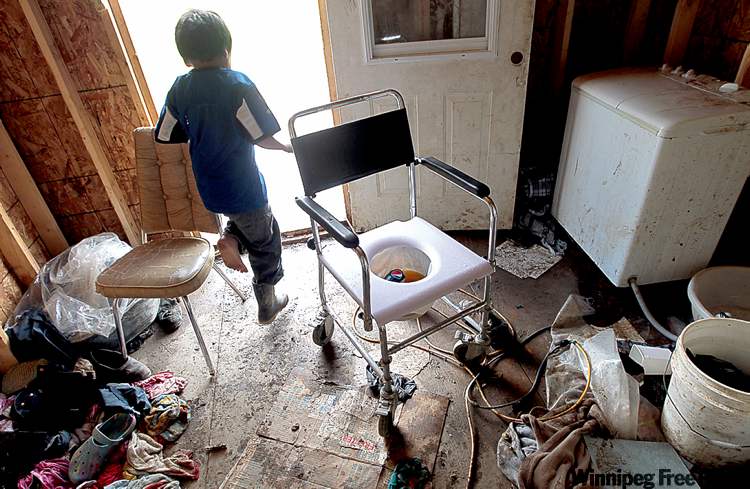First Nations to alert UN to water woes
Minimum standards not being met: MKO
Advertisement
Read this article for free:
or
Already have an account? Log in here »
To continue reading, please subscribe:
Monthly Digital Subscription
$0 for the first 4 weeks*
- Enjoy unlimited reading on winnipegfreepress.com
- Read the E-Edition, our digital replica newspaper
- Access News Break, our award-winning app
- Play interactive puzzles
*No charge for 4 weeks then price increases to the regular rate of $19.00 plus GST every four weeks. Offer available to new and qualified returning subscribers only. Cancel any time.
Monthly Digital Subscription
$4.75/week*
- Enjoy unlimited reading on winnipegfreepress.com
- Read the E-Edition, our digital replica newspaper
- Access News Break, our award-winning app
- Play interactive puzzles
*Billed as $19 plus GST every four weeks. Cancel any time.
To continue reading, please subscribe:
Add Free Press access to your Brandon Sun subscription for only an additional
$1 for the first 4 weeks*
*Your next subscription payment will increase by $1.00 and you will be charged $16.99 plus GST for four weeks. After four weeks, your payment will increase to $23.99 plus GST every four weeks.
Read unlimited articles for free today:
or
Already have an account? Log in here »
Hey there, time traveller!
This article was published 16/02/2011 (5414 days ago), so information in it may no longer be current.
OTTAWA — First Nations leaders from northern Manitoba are taking their water crisis to the United Nations.
Manitoba Keewatinowi Okimakanak Grand Chief David Harper told a Senate committee hearing Tuesday the lack of running water in more than 1,000 homes in northern Manitoba is a violation of the United Nations Declaration of the Rights of Indigenous People.
MKO plans to ask the UN to investigate the violations of rights imposed by the lack of water.

“How many more people in northern Manitoba First Nations must get sick with the flu or other diseases just because they can’t wash their hands before the government of Canada will take action?” Harper asked the senators at the committee.
Last fall, the Winnipeg Free Press exposed the Third World conditions in the Island Lake region of Manitoba, where most families have less water every day than people in refugee camps.
The United Nations recommends 50 litres of clean water are needed per person every day to meet minimum standards. In disaster zones, the UN recommends at least 15 litres of clean water per person per day.
Many people in the Island Lake region get by on 10 litres per day, usually lugged by family members in pails from local water pipes. Additional water comes in untreated from lakes and rivers that have tested positive for contaminants including E. coli.
The issue has been front and centre as the aboriginal peoples committee of the Senate considers bill S-11. The legislation seeks to regulate water quality on reserves.
Chiefs nationwide have said the bill puts the regulation cart before the water truck.
Few communities have the infrastructure needed to meet any regulations on water standards and chiefs, including Harper, say the government needs to help build the systems before they can be regulated.
“Bill S-11 will not deliver clean running water into 1,000 homes in northern Manitoba,” said Harper.
Conservative Sen. Patrick Brazeau, who introduced the bill in the senate for the government, said the bill is intended as a starting place.
“Would you agree, at least, it’s a step forward?” he asked.
Harper said only if the bill also included a requirement for the government to ensure the systems were in place to meet regulations.
Several Liberal senators have indicated plans to vote against the legislation, though the Conservatives likely have enough votes on their side to pass it on to the House of Commons.
Liberal Sen. Roméo Dallaire said he finds it disturbing most Canadians don’t even have to think about clean running water at their summer homes, let alone their primary residences.
“Cottage country in Canada has much better drinking water than you,” Dallaire said.
Harper is pushing for the federal government and Manitoba to join forces to build the water-treatment plants, water holding tanks and indoor plumbing fixtures needed to ensure the Island Lake residents have enough clean water to drink, cook and bathe.
mia.rabson@freepress.mb.ca

